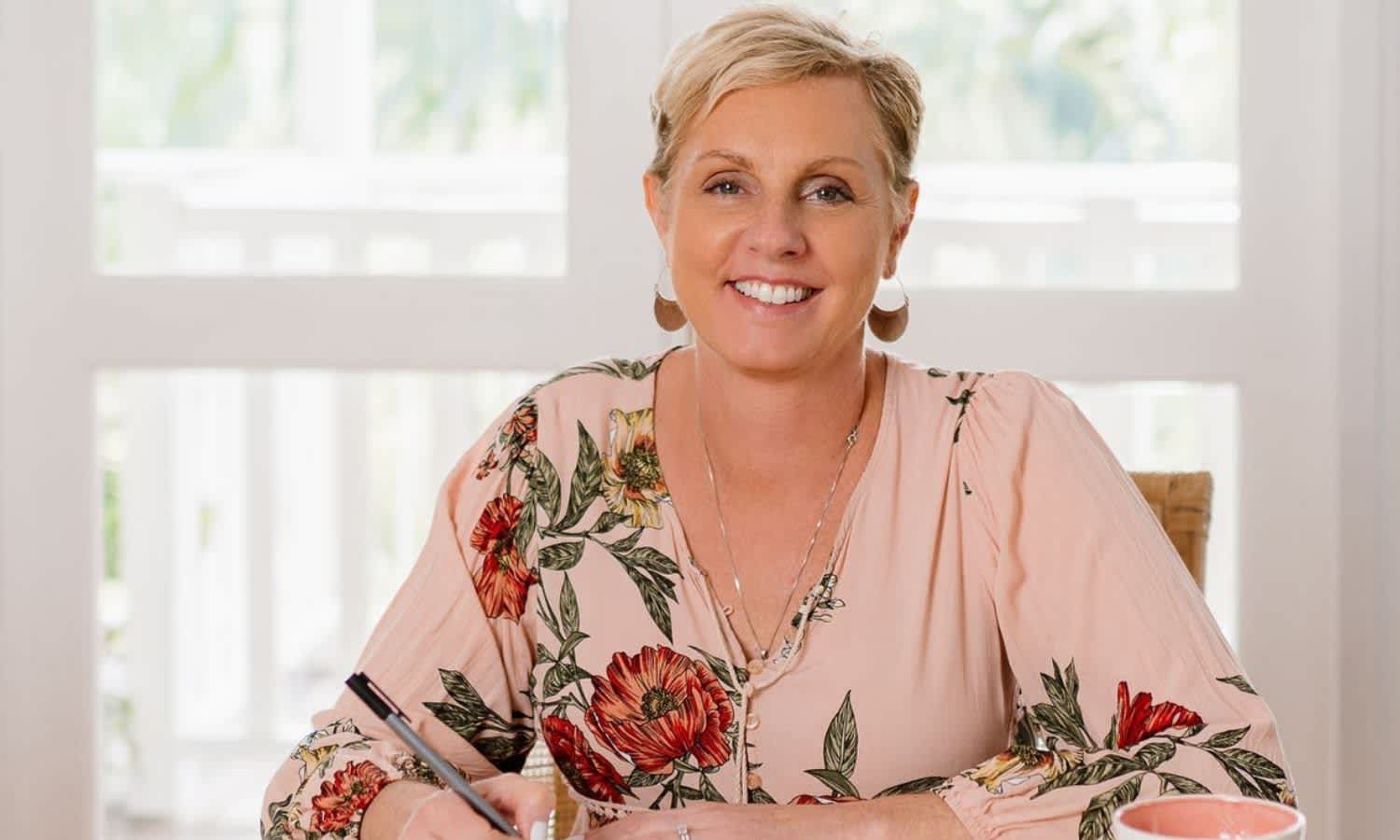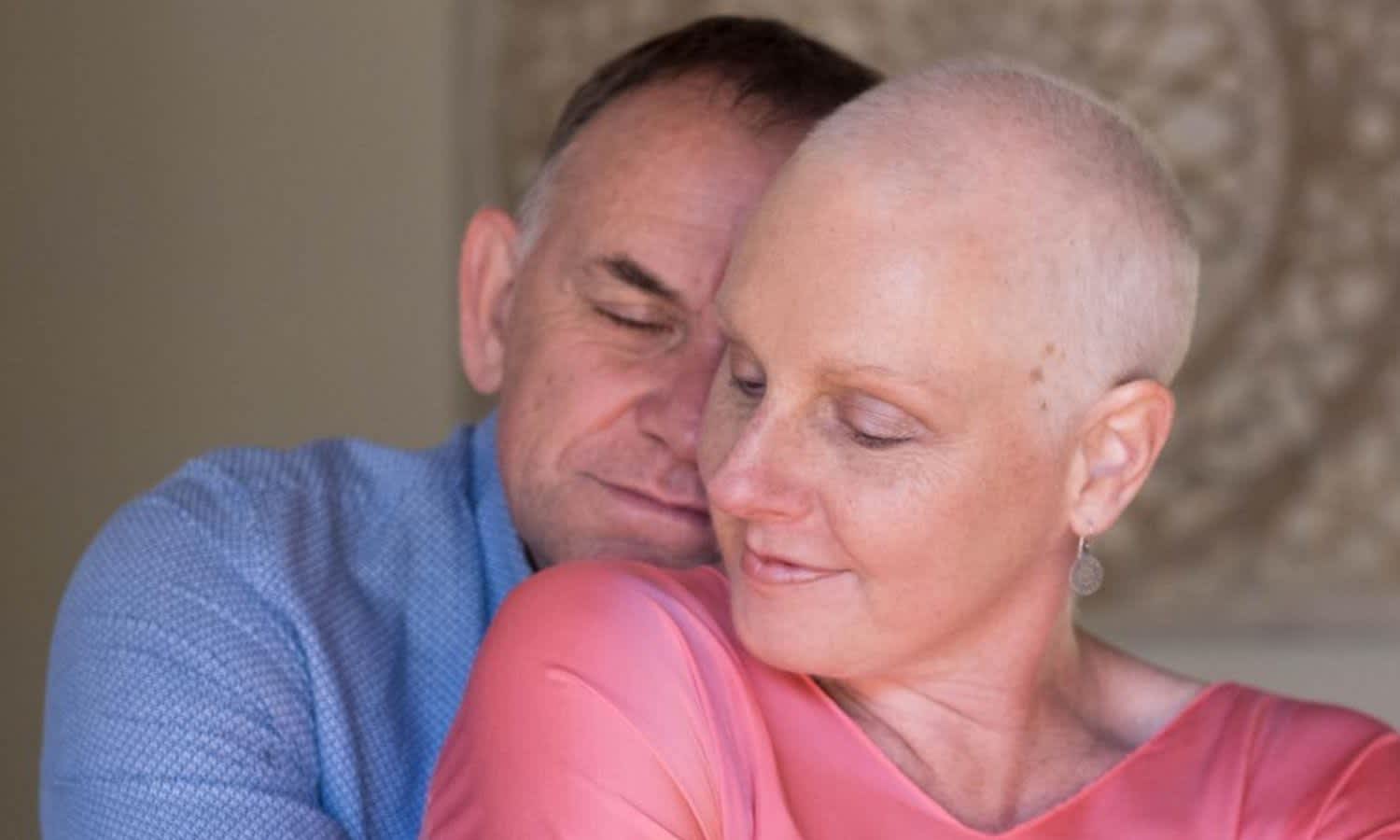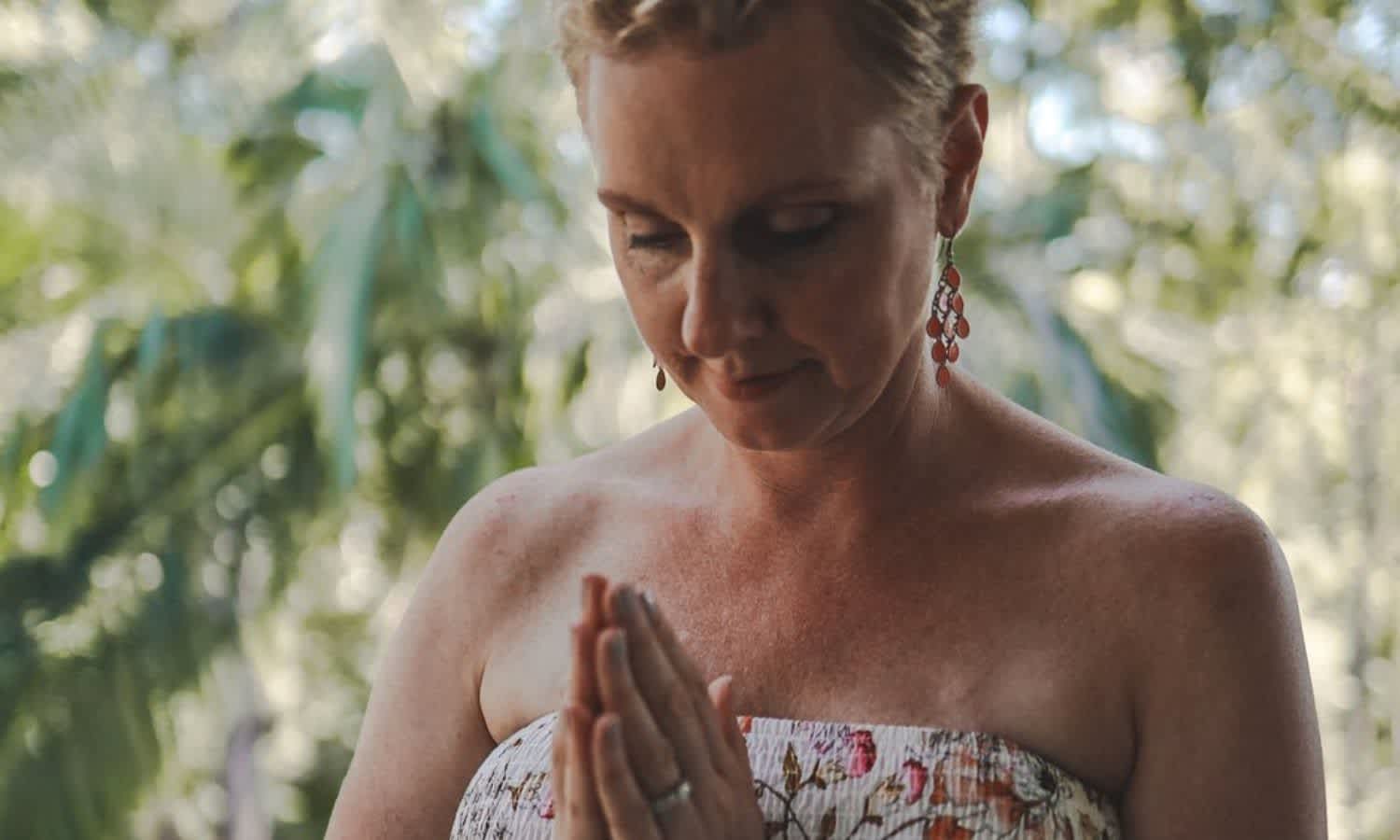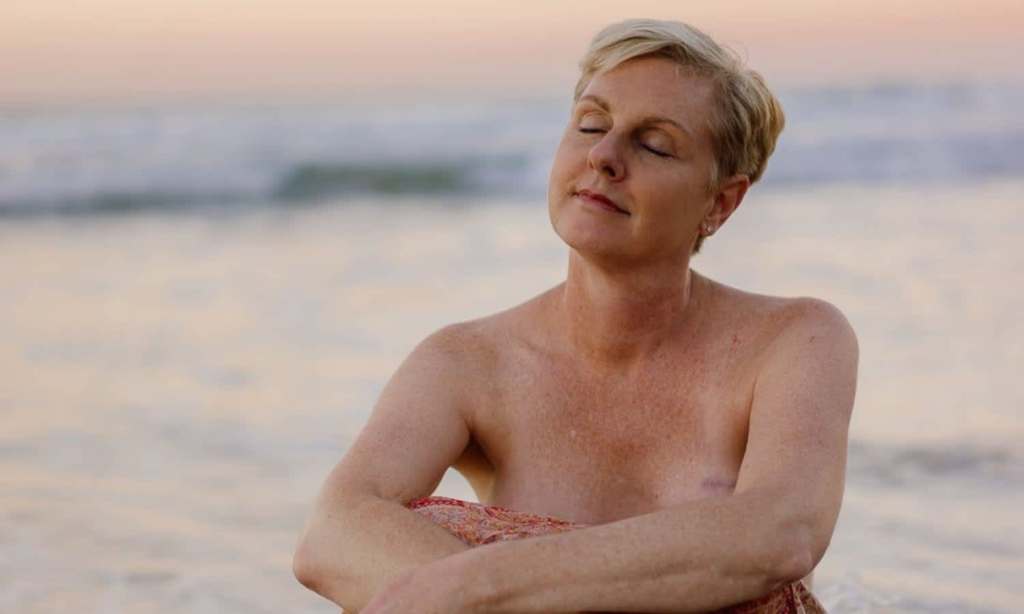I don’t think I heard a word after she said, “You have cancer”.
As my husband and I sat across from my breast surgeon, I’m pretty sure I went straight into shock. It was as though everything around me went blurry and out of focus.
There are so many things I wish I’d known then, the kind of things you can only glean through experience and time. I’m fortunate to have come ‘out the other side’ of cancer, alive but not unscathed.
I would’ve loved for a woman who had traversed this path before me to somehow infuse her wisdom and learnings into me so I might navigate this bumpy, uncharted territory with a little more ease and grace.

There are a few things I wish I’d known when I was diagnosed with cancer. Here are 11 of them:
Stop, Breathe, Check-in With Yourself
I have been diagnosed with cancer twice. On both occasions, the surgeon delivered their findings in a clinical, matter-of-fact way, like my take-away order was ready. To her, I was just another patient. For me, I was not accustomed to hearing such words. Nothing prepares you for it; I doubt anything ever could.
When I was diagnosed for the second time, my breast surgeon was very quick to provide her diagnosis and proposed treatment plan. She was keen to conduct a lumpectomy to excise the rogue cancer cells growing in my chest within a matter of days, and urged me to meet with an oncologist immediately.
Already in a state of shock, the thought of heading straight into surgery and chemotherapy was overwhelming.
Suddenly, my life was a whirlwind of scans and appointments. I felt poked and prodded at, and at the whim of doctors who were complete strangers to me.
I wish I’d known that I could’ve stopped, and taken a big, deep breath between my diagnosis and commencing treatment. I was made to feel that my health was in a critical state and that we would need to act fast. If I had my time again, I would like to have hit the proverbial ‘pause’ on everything to gather my thoughts, do my own research and check-in with myself to ensure that the proposed treatment plan felt right for me. Surely a bit of extra time for me would not have affected my health too gravely.
Enlist the Help of a Key Support Person
Most people when they’re first diagnosed with cancer go into a state of shock, denial and anxiety. I felt like my whole world was turned upside down and went into a state of shock for a good month, if not longer.
I wish I’d known to consciously choose a key support person, someone who could accompany me to all of my appointments, who could help me research and gather information, who could help me to make informed decisions when I wasn’t functioning at my best.
Having someone grounded and level-headed with you is so valuable, as they can help you take in information, to recall the conversations at appointments, and to make decisions about your treatment path going forward.
Build an Amazing Medical Team to Support You
Throughout my cancer journey, each medical specialist I dealt with had a different approach, a different mindset, a different energy and a different level of expertise.
There are many doctors and many different approaches to cancer treatment so I wish I knew and had the confidence to shop around and align myself with the doctors that I felt were going to give me the best support in the way that I wanted to receive it.
It is incredibly important to build a medical team that you feel aligns with you and your ideals.

Be Informed
When you are navigating uncharted territory, it’s difficult to know what information to look for, where to find it, and what questions to ask so you can equip yourself for the journey ahead.
I wish I’d known to ask loads of questions. Your doctor is there to inform and support you, and you can learn more about your diagnosis and proposed treatment from other sources like the Cancer Council and other reliable agencies.
It is a great practice to have a notebook or journal to take notes in during appointments, so you can make reference to them later.
If you’d like a check list of questions to ask your doctor, find my top questions here.
Complement Your Healing Journey With Other Therapies
Travelling the path of cancer for a second time, I felt cracked wide open by this experience and wanted desperately to heal my mind and soul, as well as my body.
I went in search of additional therapies that would complement and support my healing journey.
Neither my breast surgeon nor my oncologist looked upon this move favourably, nor were they curious to explore them with me.
I wish I’d known that following my own intuition was actually the most important thing I could’ve chosen to do.
If I had my time again, I would’ve researched and explored more, and trialled alternative and complementary therapies to add further value and more healing support to my treatment regime.
Be Open to Receiving Love and Support
After my second diagnosis, my husband Chris said: “There are so many people that love you and want to support you through your cancer journey, why don’t you let them in and happily receive the support they’re so willing to give you?”
I’ve always been a very independent person, probably because I don’t want to be a burden to anyone else. The thought of asking for help and letting people see that I needed help was a really big challenge.
It takes a community to support someone going through treatment. Reach out and have confidence to ask for what you need and be open to accepting it.
People May Surprise You
People show up for you in only the ways they can.

From my very earliest days in treatment I had an expectation — albeit an unspoken one — of those I imagined would be my support team throughout the journey ahead. That wasn’t the case.
Sometimes, the people who you most expect to be there for you may not show up for you at all. This was one of the most confronting and challenging aspects of my journey.
The silver lining, however, was that a number of people that I least suspected would be there for me came out of the woodwork and offered their full support.
I came to a place in my treatment journey where I marvelled at who did show up and I appreciated and enjoyed every message, letter, gift, phone call and the unique ways that each person showed up to support me along my path.
Cancer Doesn’t Define You
A cancer diagnosis can send shock waves through you, however, it doesn’t need to define you. Cancer is a serious disease and needs to be tended to, but you are not your cancer. There are so many other parts of you… like your interests, your work, your relationships, your dreams.
I wish I’d known how to keep a healthy perspective about who I was after my diagnosis, and that cancer was part of my experience but was not my whole identity.
Introduce Stabilising Practices That Bring You Calm
Hearing the words “you have cancer” are probably among the scariest words one will ever hear. It’s enough to send your nervous system into overdrive. This state of overwhelm is the worst place to be when taking in new information and making critical decisions about our health.
I wish I’d known how powerful the practice of meditation is. From the onset of my diagnosis and into treatment, I discovered meditation to be one of the most valuable activities that I engaged in to help me cope. Meditation helped me to manage my emotions, ensuring I kept a sense of calm about me when my world seemed to be upside down.
Journal Your Feelings
I learned that going through cancer treatment is just as much an emotional journey as it is a physical one. I found that journaling my feelings in a beautiful book or journal was a powerful way to express what was going on within me. It was a safe place to explore my inner landscape, my thoughts and feelings without fear of judgment or repercussion.
I wish I’d known just how healing the practice of writing can be. Gift yourself the time to express your thoughts and feelings in a beautiful journal.
Find the Gifts of Cancer
After my second diagnosis, I believed that cancer had shown up for a reason. I believed in some way that cancer had an important message for me, and as I journeyed through treatment, I chose to mine the gifts from this experience. I discovered there are many.
I wouldn’t wish cancer on anyone, however, I know that my life is better for having had this experience, and I would not want to return to my life before cancer.
These are just 11 helpful tips I wish I’d known when I was first diagnosed, but this is only scratching the surface. There is so much more. I hope these tips will give you some guidance and support, and help you to navigate your journey with cancer with more ease and grace.
Read more stories from The Latch and subscribe to our email newsletter.







